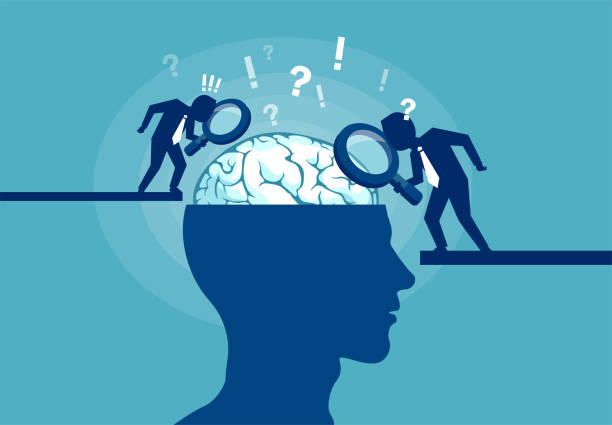Ever find yourself wondering if you’re truly in tune with your emotions or if life’s just throwing you off balance again? We’ve all been there, juggling the demands of daily life while trying to keep our emotional ducks in a row. It’s not easy, but understanding the signs of a healthy emotional balance can be a game-changer for your well-being.
Welcome to Fit and Healed Blog, where we dive into the subtle yet powerful indicators that signal emotional harmony. From feeling genuinely content to navigating stress with grace, these signs are the unsung heroes of a fulfilled life. Discover how recognizing them can transform your everyday experiences.
So, are you ready to uncover the secrets to a balanced emotional life? Save this article and stay ahead in your journey to emotional wellness. Let’s make emotional balance not just a goal, but a way of living.
1. Calm Under Pressure

Finding yourself calm under pressure is a hallmark of emotional balance. Imagine navigating a sudden work crisis or a personal challenge with the grace of a swan gliding across a pond. This calmness stems from understanding that not every situation requires a fight-or-flight response. Instead, it’s about assessing the situation and responding with clarity.
One practical way to cultivate this calm is to adopt a mindset of curiosity rather than judgment. When faced with stress, ask yourself, “What can I learn from this?” or “How can I grow through this challenge?” This shift in perspective not only reduces anxiety but also empowers you to handle situations more effectively.
- Practice deep breathing exercises to anchor yourself during stressful moments.
- Visualize a positive outcome to guide your actions toward solutions rather than problems.
- Maintain a journal to reflect on past experiences where you successfully managed stress.
Remember, staying calm under pressure is a skill honed over time, offering the benefit of improved decision-making and a healthier emotional state. Embrace the challenge with a peaceful heart, and you’ll find yourself navigating life’s storms with ease.
2. Positive Self-Talk

Embracing positive self-talk is like having a friendly coach in your corner, cheering you on through life’s ups and downs. It’s not just about avoiding negativity—it’s about fostering a language of encouragement and patience with yourself. Think of it as the script to your own personal pep talk. Start by identifying any critical or pessimistic thoughts and gently challenge them. Replace “I can’t handle this” with “I am capable and learning each day.” This simple shift can transform how you face challenges.
Incorporating positive affirmations into your daily routine can help. Consider starting your day by saying, “I am worthy of good things,” or “I am growing and improving.” Over time, these affirmations can become your mental soundtrack, boosting your resilience and self-esteem.
Remember, the power of positive self-talk lies in its ability to reshape your reality. By consistently practicing it, you’ll find yourself more at peace and ready to embrace life’s adventures. Let positivity become the cornerstone of your emotional balance.
3. Balanced Relationships

Having balanced relationships is a cornerstone of emotional well-being. These are the connections where both parties feel valued and respected, allowing for mutual growth. Imagine a friendship where both sides are equally invested, or a partnership where communication flows freely. 🌱 These are the hallmarks of balance.
To nurture such relationships, start by practicing active listening. When your friend or partner speaks, give them your full attention. This small act can deepen understanding and trust. Also, don’t shy away from setting boundaries. It might feel uncomfortable at first, but knowing your limits and expressing them can lead to healthier interactions.
Equally important is the art of compromise. Consider making a list of non-negotiables and areas where you’re open to flexibility. This approach not only clarifies your needs but also respects the viewpoint of others.
Balanced relationships bring joy and reduce stress. They empower you to be your authentic self while supporting those you care about. Remember, balance is not a destination but a continuous journey. Keep nurturing it, and enjoy the harmony it brings to your life. 💖
4. Clear Boundaries Set

Establishing clear boundaries is a key sign of having a healthy emotional balance. Boundaries are essential for maintaining your well-being and ensuring that others respect your emotional space. When you set boundaries, you communicate what is acceptable and what is not in your interactions, creating a foundation of mutual respect and understanding.
Setting effective boundaries starts with self-awareness. Reflect on what makes you uncomfortable or stressed in your relationships. Once you’ve identified these triggers, communicate your needs clearly and assertively. It’s okay to say “no” without feeling guilty—it’s an act of self-care.
To reinforce your boundaries, practice consistency. If someone crosses a line, address it immediately. This not only protects your emotional health but also teaches others how to treat you. Remember, boundaries are not walls; they are bridges to healthier relationships.
By setting clear boundaries, you empower yourself and foster environments where you feel respected and valued. This practice enhances your emotional resilience, allowing you to navigate life’s challenges with grace and strength. 🌿
The takeaway here? Boundaries are your personal power lines—protect them, and they will protect you.
5. Adaptable to Change

Adapting to change is a hallmark of emotional health. It means embracing life’s unpredictability with resilience and a positive mindset. Change can be daunting, but with the right approach, it becomes an opportunity for growth and transformation.
Start by cultivating a mindset that welcomes change. This involves shifting your perspective from fearing the unknown to viewing it as an adventure. When you encounter change, remind yourself of past experiences where you successfully adapted. Reflecting on these moments can boost your confidence and readiness to handle new challenges.
To bolster your adaptability, consider these practical steps:
- Stay Informed: Knowledge reduces uncertainty. Gather information about the change to feel more prepared.
- Practice Flexibility: Regularly challenge your routines. Small adjustments can make bigger transitions smoother.
- Seek Support: Reach out to friends or mentors who can provide guidance and encouragement.
Embracing change not only enhances your emotional resilience but also opens doors to new opportunities and experiences. Remember, every transition is a chance to write a new chapter in your life story 📖.
6. Mindful of Emotions

Being mindful of your emotions can significantly enhance your emotional balance. It’s not just about recognizing what you’re feeling, but understanding why those feelings arise and how they impact your actions. This awareness can transform your emotional landscape, paving the way for healthier reactions and relationships 🌱.
To start, try setting aside a few minutes each day for emotional check-ins. Ask yourself what you’re feeling and why, without judgment. Consider keeping a journal where you jot down these reflections. This process encourages self-awareness and helps in identifying patterns over time.
One effective practice is to pause before reacting to an emotional trigger. Take a deep breath, acknowledge the emotion, and decide on a response instead of reacting impulsively. This not only helps in managing stress but also fosters patience and empathy.
Embracing this mindful approach to your emotions transforms them from potential stressors into tools for growth and connection. Remember, understanding your emotions is a lifelong journey, and every step taken mindfully is a step towards greater emotional balance 🌟.
7. Grateful Attitude

In the whirlwind of daily life, a grateful attitude serves as a calming anchor, grounding us in the present moment. It’s more than just saying “thank you”—it’s about recognizing the abundance in our lives and cherishing it. A unique angle to consider is that gratitude can be cultivated as a form of emotional self-care, nurturing our mental health as much as our happiness.
To infuse more gratitude into your life, try starting each day with a simple practice. Before getting out of bed, take a moment to reflect on three things you’re thankful for. This sets a positive tone for the day ahead. Additionally, consider expressing gratitude through small acts of kindness, like leaving a sweet note for a loved one or complimenting a stranger. These acts not only uplift others but enrich your own emotional wellbeing.
The magic of gratitude lies in its ability to shift perspective, focusing the mind on positivity and abundance rather than scarcity. Embrace gratitude as a daily practice and watch as it transforms your outlook, fostering a more balanced and joyful emotional state.
8. Time for Self-Care

In today’s whirlwind of responsibilities, carving out time for self-care can feel like a luxury rather than a necessity. Yet, nurturing your emotional well-being is vital for maintaining a healthy balance. Think of self-care as tuning your instrument—your body and mind—to play life’s beautiful symphony.
Consider these actionable steps to seamlessly integrate self-care into your busy schedule:
- Prioritize Downtime: Schedule breaks like you would meetings. Even a 10-minute pause can recharge your mental batteries.
- Mindful Moments: Engage in activities that promote relaxation, such as deep breathing or a brief nature walk. These small actions can have a big impact on your emotional state.
While it might seem challenging, the benefits are undeniable. Regular self-care leads to improved mood, reduced stress, and enhanced clarity. 🧘♀️
Remember, self-care isn’t selfish; it’s essential. The time you invest in yourself today will help you better support others tomorrow. 🌟
9. Healthy Coping Skills

Life throws curveballs, but having healthy coping skills can help you navigate life’s ups and downs with grace. These skills are like the emotional tools in your toolkit, ready to assist you whenever challenges arise.
First, recognize your stress triggers and choose proactive strategies to address them. Whether it’s a daily mindfulness practice, a brisk walk, or a creative hobby, having go-to activities can keep stress at bay. Engaging in these activities regularly can improve your emotional resilience and stability.
Another crucial aspect is maintaining a strong support network. Reach out to friends or family when things get tough. Sometimes, simply sharing your feelings can lighten the load and provide new perspectives. Remember, it’s okay to ask for help; it’s a sign of strength, not weakness.
Finally, develop a positive inner dialogue. Replace self-criticism with self-compassion. A few kind words to yourself can significantly impact your emotional health and encourage a balanced outlook.
Incorporating these habits into your daily routine can nurture a more balanced emotional state, equipping you to handle whatever life throws your way. Embrace these tools, and you’ll find strength and peace in even the most challenging times. 🌟
10. Constructive Feedback Use

Embracing constructive feedback is a hallmark of emotional maturity. Rather than viewing it as criticism, see it as an opportunity for growth. When you receive feedback, pause and reflect on the core message. Consider how you can implement the advice in a way that aligns with your personal goals.
One effective approach is to engage in active listening. This means focusing on the speaker without immediately crafting a response. Afterward, ask clarifying questions to ensure you’ve understood their perspective. Practicing gratitude for feedback, even when it’s tough to hear, shifts the focus from defense to development.
Next, create a plan to integrate the feedback. Break it down into manageable steps. This could be as simple as setting a reminder to practice a new skill or seeking additional resources to expand your understanding.
Remember, using feedback constructively not only enhances your personal growth but also strengthens your relationships by showing others you value their input. 💪
Ultimately, the ability to use feedback constructively is a vital skill that empowers you to thrive in any environment. 🌟
11. Regular Reflection Time

Taking time for regular reflection can be the anchor you need in a fast-paced world. This practice isn’t just about looking back; it’s a proactive way to ensure you’re aligned with your emotions and goals. Reflection helps you recognize patterns, celebrate small wins, and make intentional adjustments.
Start by setting aside a weekly “reflection hour.” This is a dedicated time for you to pause and consider your recent experiences. Use this time to journal about your feelings, review your goals, or simply meditate. Keep it relaxed and enjoyable, perhaps with a cup of tea or soothing music.
To make this practice stick, consider these steps:
- Choose a consistent time each week.
- Create a comfortable space free of distractions.
- Reflect on three key areas: personal growth, relationships, and emotional wellbeing.
Engaging in regular reflection fosters self-awareness and emotional balance. It’s a chance to hit the reset button and approach the coming week with a clear mind and heart. 🌟
Remember, reflection isn’t about dwelling on the past, but about learning and growing. Embrace this time as a gift to yourself. Here’s to discovering more about who you are and where you want to go! 🌱
12. Open to New Ideas

Embracing new ideas is like opening a window to let fresh air into your life. It’s a sign of emotional balance and mental agility, allowing you to grow and adapt in a constantly changing world. Being open doesn’t mean agreeing with every new concept, but rather considering different perspectives without immediate judgment.
To cultivate this openness, start by setting aside time each week to explore unfamiliar topics. This could be through reading, listening to podcasts, or engaging in conversations with people outside of your usual circle. A simple practice is to ask open-ended questions, such as “What if?” or “How might this change things?” to stimulate your curiosity.
- Practice active listening when someone shares an idea different from yours.
- Engage in activities that challenge your routine or comfort zone.
- Reflect on how new ideas could positively impact your life.
The benefits of staying open to new ideas are immense. It enhances your problem-solving skills, boosts creativity, and fosters an environment of continuous learning. Remember, every new idea is a stepping stone towards a more enriched life experience. Keep those windows open, and see where the breeze takes you! 🌬️
As we wrap up this journey through the 12 signs of a healthy emotional balance, let’s revisit the key points that guide us toward emotional well-being: self-awareness, effective communication, adaptability, resilience, empathy, healthy boundaries, gratitude, mindfulness, constructive problem-solving, positive self-talk, emotional regulation, and the pursuit of meaningful connections. Each of these elements plays a vital role in nurturing a harmonious inner life.
Remember, achieving emotional balance is not about perfection but progress. Celebrate each small step you take on this path and know that you’re building a stronger, more resilient version of yourself. Embrace the journey with kindness and patience.
Now, why not make this empowering guide a part of your personal toolbox? Save this article to your Pinterest board so you can easily revisit these insights whenever you need a boost. It’s a way to remind yourself that you’re capable of cultivating a balanced, fulfilling life.
In the words of the wise, “Balance is not something you find, it’s something you create.” So, go forth and create your masterpiece. You’ve got this! 🌟
